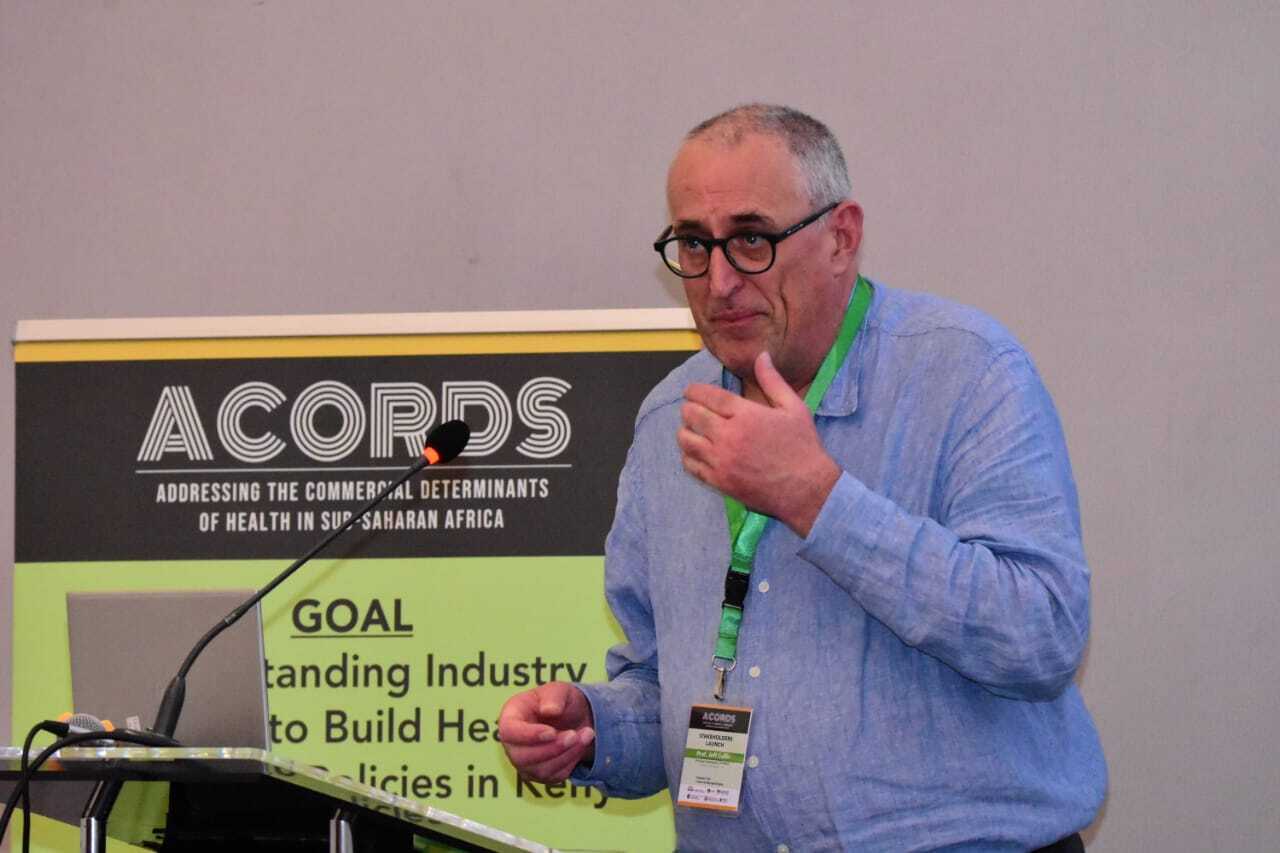- The 254 Report
- Posts
- Industry Writes the Law, Government Takes the Credit: Inside Africa's Corporate Capture of Health Policy
Industry Writes the Law, Government Takes the Credit: Inside Africa's Corporate Capture of Health Policy

Photo by Joseph Kiptarus
In 1994, British American Tobacco sent a fax to London that exposed what happens when corporations control governments.
"The law was actually drafted by us, so the Government has to be congratulated on its wise actions."
Kenya's tobacco law, the government proudly announced, was crafted by industry. And nobody questioned it.
Professor Jeff Collin of Edinburgh University has spent three decades documenting what that fax really meant: corporations don't just lobby governments. They write policy. They sit on the same boards as health officials. They exploit governance vacuums in Africa to expand markets for products that kill.
His latest research, ACORDS (Addressing Commercial Determinants of Health in Sub-Saharan Africa), reveals that the 1994 BAT playbook is now being perfected by alcohol industries, ultra-processed food companies, and fossil fuel corporations across Kenya, Ghana, and South Africa.
The Pattern: Corporate Law Becomes Government Policy
Collin began as a researcher sifting through tobacco industry documents released after US litigation. One finding would define his career: BAT Kenya didn't influence law. It drafted it.
"Rather than compete on price with a new rival, what BAT Kenya did was get legislation passed which required farmers to sell to them. This fax from 1994 was a briefing for the head of BAT about the new tobacco law being passed. It simply stated: the law was actually drafted by us."
But in Kenya in 1994, nobody called this corruption. It was called policy.
500 Schools, 50% Junk Food Advertising
APHRC researchers examined 500 schools across Kenya. Over 50% of advertisements promote ultra-processed foods. Not books. Not education. Junk food.
Children are deliberately targeted because:
"Once you win the children, you have won the whole population."
Alcohol companies donate scholarships to top students. The first alcohol experience for honor students comes through the brand that paid for their achievement. By age 25, that conditioning becomes preference. By age 45, it becomes disease.
Kenya's government acknowledges:
"Advertising outstrips our efforts to promote health."
Why Corporations Choose Africa
Industries don't come to Africa because consumers demand their products. They come because:
"The policy space is open for them to act in any way without any limitation or any policy barriers. There is cheap labor. There is a large population size. There is low regulation."
Collin explains:
"The commercial determinants of health have been positioned as integral to coloniality and racism. There are strong power asymmetries in food systems within and across countries."
The colonial era ended in 1960. The colonial economics never left.
Interlocking Directorates: The Board Members Who Sit Everywhere
ACORDS is mapping interlocking directorates: board members who sit simultaneously on alcohol company boards and health ministry committees. On food industry boards and hospital management boards. On fossil fuel company boards and environmental committees.
No policy frameworks govern these relationships. Kenya's NCD Strategic Plan SWOT analysis explicitly names "industry interference" as a threat equal to pandemics. Yet the government has no rules preventing the very interference it identifies as dangerous.
The $100 Billion Merger Built on Expanding Beer Sales in Africa
In 2008, AB InBev merged with South African Breweries to become the world's second-largest brewing company. It was the third-largest corporate merger in history.
"The merger was built almost entirely on the prospect of increasing sales of beer in Africa. I think it's one of the biggest things that happened in global health in the last decade. But it doesn't get thought of in those terms unless we use the commercial determinants of health lens."
Kenya welcomed it as investment. Public health experts recognize it as disease expansion.
85% of Premature NCD Deaths Occur in Low-Income Countries
Kenya's Health Ministry acknowledged that over 50% of all emissions are due to NCDs. The NCDs are now the second-largest killer in Kenya, and rising rapidly.
APHRC's evidence on what's driving this crisis is documented. The researchers collected the 500-school advertising data. They mapped the interlocking directorates. They calculated the market concentration of industries targeting low-income consumers.
The methodology is proven. The ethical foundation is established. The evidence is real.
Four Work Packages Exposing Corporate Capture
ACORDS has established a research framework:
Work Package 1: Mapping Health Impacts documents how commercial determinants affect health and unpacks corporate political activity across alcohol, ultra-processed food, and fossil fuel industries.
Work Package 2: Economic Analysis evaluates market concentration, sales trends, and marketing expenditure proving industries deliberately target low-income consumers.
Work Package 3: Governance Analysis examines conflicts of interest and documents how health governance can be enhanced by managing them effectively.
"Evidence generated by the project will directly inform policy processes. We're looking to enable procedural and policy changes in how governments, civil society organizations, and academic institutions manage their interactions with the health and commodity industries. Really looking to redefine the nature of those relationships."
Work Package 4: Community Co-Production engages communities and organizations to generate evidence for action and disseminate findings through channels that reach decision-makers.
"The evidence that we generate is useless if it's not taken into action."
From Fax to Framework: 30 Years of Documenting Corporate Capture
Collin's career began with one incriminating fax. It evolved into a comprehensive framework now operating across three African countries.
"Our ambition is to transform government structures and practices in academic settings, in civil society, in government, and inform changes in domestic and international agencies."
The transformation requires investigation. It requires people willing to ask: if the 1994 BAT fax revealed policy capture, what does 2025's AB InBev merger and school advertising reveal?
The evidence is assembled. The networks are documented. The story is clear.
Will Kenya redraw those relationships before they're permanent?
Or will 2055 reveal another fax, from another industry, taking credit for another law it wrote itself?
Reply